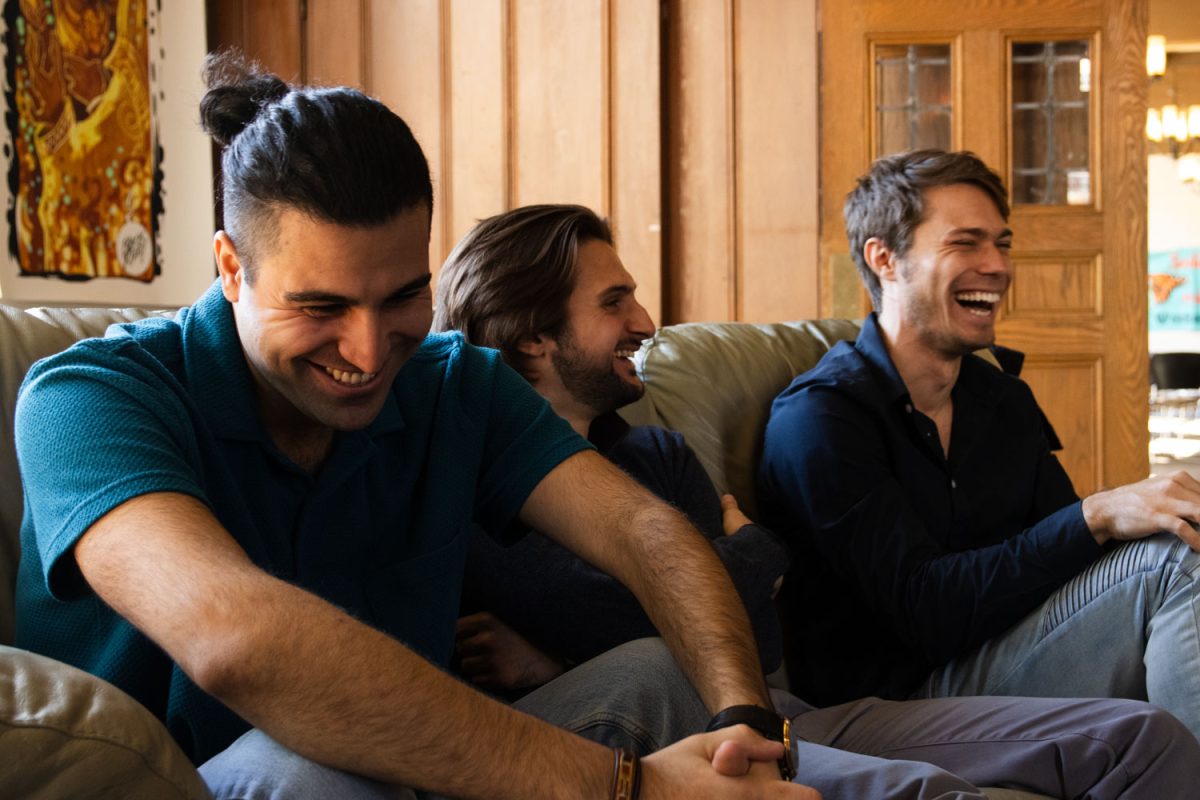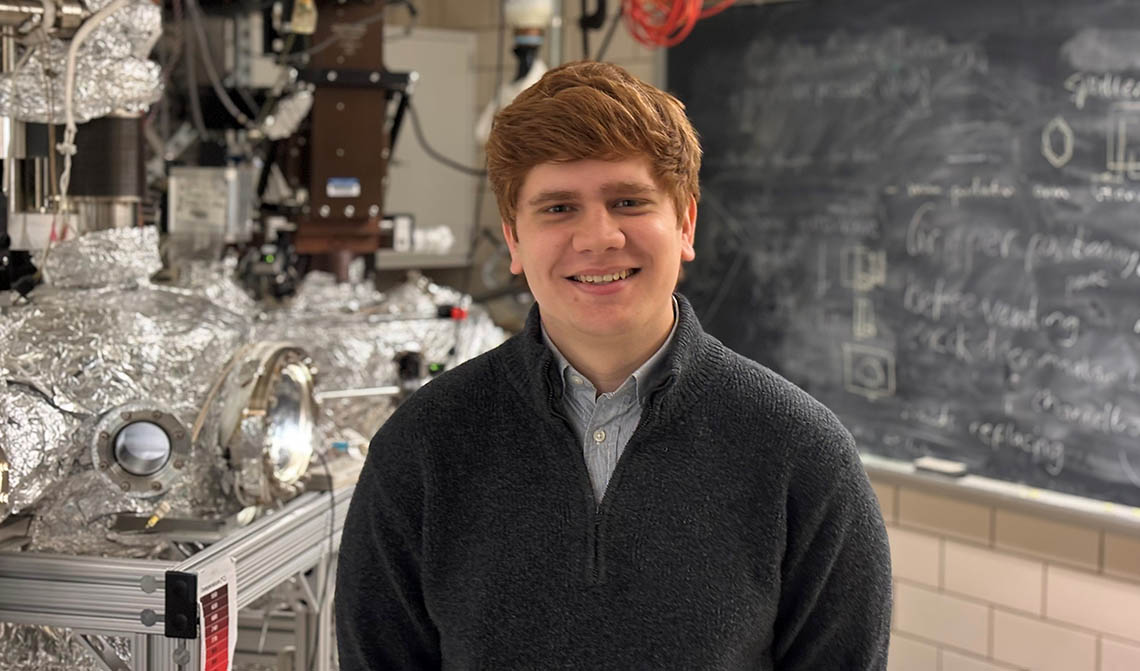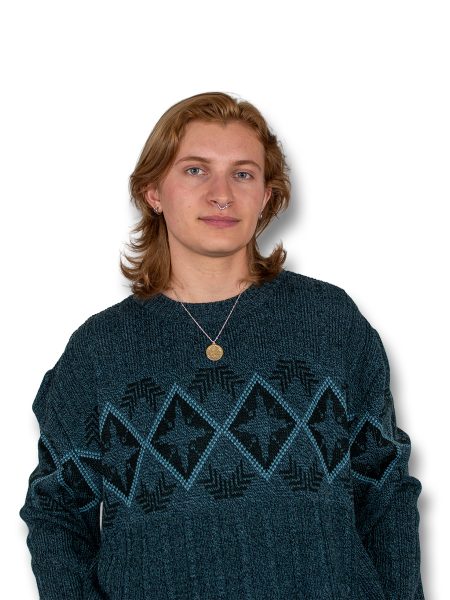Last updated on Nov. 4, 2024 at 02:37 p.m.
Eddie Winner, Joseph Saoud and Daniel Fallah have a typical friendship at first glance. As full-time international students in the College of Law, the trio spends their time studying, hanging out at each others’ apartments and occasionally playing in a local soccer league.
When the three sat together on the couch of the University YMCA on Oct. 16, they laughed and chatted about their favorite memories together at the Law Building — which, according to them, they rarely have time between studies to venture out of.
Beyond their academic and social lives in Champaign-Urbana, this trio’s friendship has a special meaning: The home countries of each student — Israel, Lebanon and Iran — are presently engaged in a conflict with one another.
Winner, a second-year law student with aspirations of becoming a litigator, grew up in Israel, serving in the Israel Defense Force as an athlete.
Get The Daily Illini in your inbox!
“If you’re at a certain level, which is really hard to get, the military basically partially exempts you, saying you’re better off representing Israel on the international stage rather than being in the military,” Winner said.
Saoud, another second-year student, was born in the United States, but his family moved back to Lebanon when he was four for his father’s work. He returned to the U.S. after being recruited to play soccer as an undergrad. After getting his juris doctor degree, he hopes to move to Chicago and become a litigator like Winner.
Fallah already has a national law degree from his home country of Iran and moved to the U.S. in his mid-twenties. He dreams of staying.
“I always wanted to come to the U.S., so now I’m here,” Fallah said.
Winner said the friendship blossomed from a typical classmate meet-cute.
“We were all in the same class together,” Winner said. “Me and Joseph were in all classes pretty much together last year, and then Daniel was in a few of our classes, so we just kind of organically met.”
Fallah met the two through scattered conversations in the aforementioned class but officially completed the trio after a campus Halloween party.
Winner laughed fondly at the memory, adding he was happy to throw Fallah a real “American birthday party” this past year.
The group’s easygoing friendship in central Illinois is a far cry from the relations between their Middle-Eastern homes, with tensions high between Israel and its neighbors.
Israel launched airstrikes on Iran Saturday, claiming retaliation for an airstrike allegedly sponsored by the Islamic Republic earlier in October. The conflict doesn’t stop there — Israel also initiated both airstrikes and ground campaigns against Hezbollah in Lebanon after the militant group launched rockets into the nation.
These ongoing skirmishes are in the context of the larger Israel-Palestinian conflict, which, in the past year, has resulted in the death of 42,000 Palestinians and 1,200 Israelis.
Winner, Saoud and Fallah all have family back home in these respective countries, where negotiations have stalled. From distant friends to close family, the trio all have loved ones impacted by the conflict.
“My grandparents, my father, my sister, my brother, everybody, my friends — they are all in Israel,” Winner said.
Saoud’s grandmother, aunts, uncles and cousins live in Lebanon, and his father spends half the year there. However, he added that most of his family left Lebanon after a financial crisis in 2019 debilitated the nation’s economy.
“I have my sister (in the U.S.) with me,” Fallah said. “Plus my dad’s side and mom’s side, uncle and other family here in California.”
The three said social media constantly updates them on the escalating situation. With those updates comes worry for their loved ones trapped in the conflicting nations. On top of that, guilt builds that their families can’t join in their prosperity in the West.
“I start feeling guilty because, like, I’m so lucky to be here in the first place,” Saoud said. “I have nothing to complain about. It could be so much worse for me, so much worse for so many people. It feels wrong for me to feel any type of way about it.”
Winner, Saoud and Fallah also spoke on the international ramifications of the war on the University’s campus. With ongoing protests of the war occurring during the past year, Saoud said, he hasn’t gotten very involved despite his heritage.
“It’s interesting where it feels like a lot of the people that are so active on both sides are usually the people that really have no concrete ties to either country with the situation going on,” Saoud said. “For example, Eddie and I are from the two countries that are basically destroying each other right now; we are not as involved. I don’t know what to make of that.”
Saoud commended students for using their right to protest on campus and understood their concerns with the U.S.’s military support for Israel. However, he, along with Winner and Fallah, thinks the conflict is a missed opportunity for dialogue.
“People are not their governments,” Winner said. “If the U.S. decides to invade a country, it doesn’t mean that you’re at fault.”
The trio doesn’t want their friendship to be a political statement. They acknowledged that some may view their stance as “pacifistic and naïve.” However, the three say overcoming generational differences and ongoing violence begins with a willingness to understand opposing perspectives.
“Change can start … (with) the dynamics at the bottom level,” Saoud said. “We all suffer, and we can point fingers at each other, but as has been said, we’ve been doing that for decades now, and it didn’t work.”
Even though a friendship among three law students can’t stop a devastating international conflict, it can show that even in times of political volatility, people of any background can find common ground and recognize others’ humanity.
“What we’re trying to show is that since three countries that are supposed to be at war, we’re not ‘supposed to’ like each other,” Fallah said. “We need to develop more of these relationships.”








